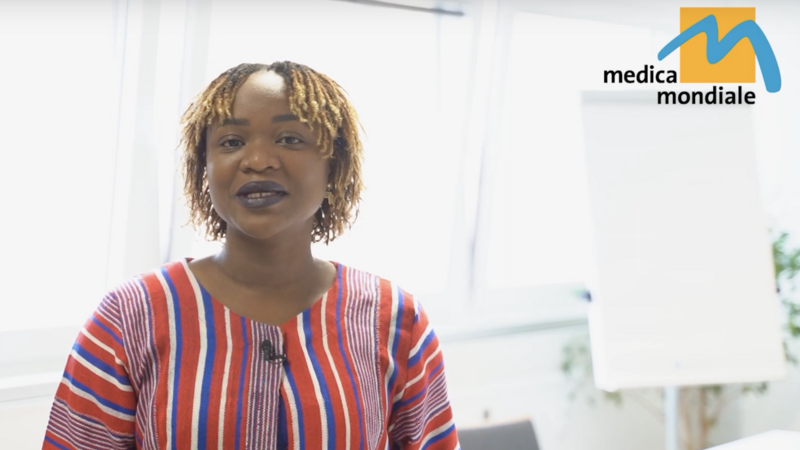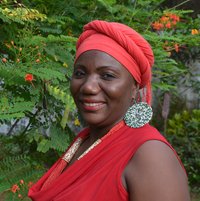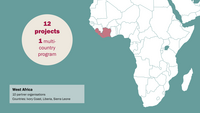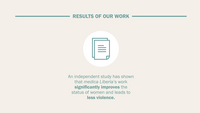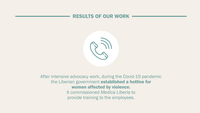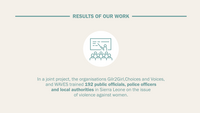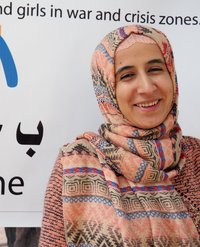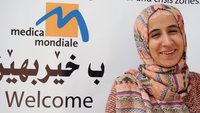Western Africa: Sexualised violence – a legacy of two decades of armed conflict
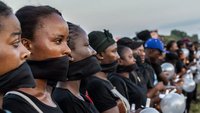
Sexualised violence in conflict and post-conflict situations
Armed conflict has prevailed in the West African Mano River region for two decades and although the civil wars in Liberia, Sierra Leone and Ivory Coast have ended, the political situation is still fragile. Deep divisions exist between government and society. Every election is dominated by the fear of new violence. Poor governance, a lack of constitutionality, a lack of resilience to deal with global economic crises are all obstacles to lasting transformation in the region.
One legacy of the conflicts is also the high level of sexualised violence. Thousands of women and girls were raped during the civil wars, and gender-based violence and structural discrimination are still firmly anchored in society and institutions today.
Eight facts about women's rights in West Africa
1. Sexualised wartime violence during the civil wars
During the civil wars in Liberia from 1989 to 2003, between 60 and 70 per cent of all women and girls in the country were raped. In the country itself there has never been a criminal prosecution of the perpetrators, even though Liberian civil society has been calling for many years for justice for the crimes committed during the civil war era. The first court case against a former rebel leader took place in 2021 in Switzerland. The Swiss Federal Criminal Court sentenced him to 20 years imprisonment.
2. Sexualised violence in so-called peacetime
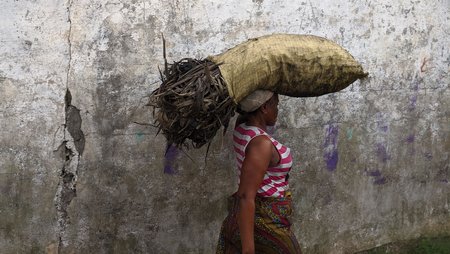
Crimes of sexualised violence are among the most commonly reported major crimes in Liberia. Civil society protests against sexualised violence and impunity led the governments in Sierra Leone and Liberia to declare states of national emergency in 2019 and 2020. They also drafted Action Plans to combat sexualised violence.
4. Ebola and Covid-19: There is more sexualised violence in times of crisis
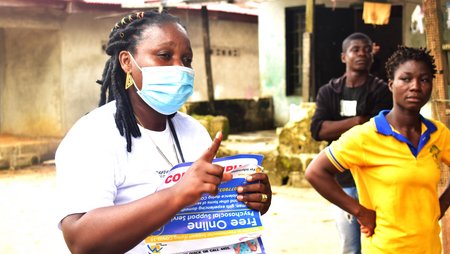
During the Ebola epidemic in West Africa from 2014 to 2016, there was a 50% increase in teenage pregnancies in Sierra Leone. Causes for this included a lack of protection, more rapes, and survival prostitution. During the Covid-19 pandemic the situation repeated itself: school closures led to an increase in teenage pregnancies. And in the first six months of the pandemic in 2020, Liberia alone recorded Covid-19 pandemic of sexualised and gender-based violence.
5. Female genital cutting widespread
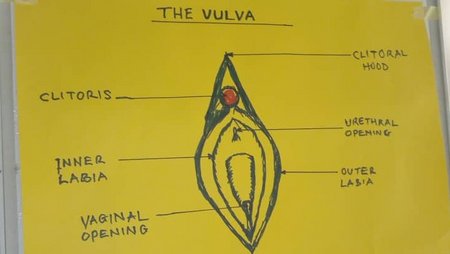
Female genital cutting, also referred to as mutilation (FGM), is accepted as a common practice and has general public support in Sierra Leone and Liberia. In Sierra Leone nine out of ten girls are cut in this way, and in Liberia it is five out of ten. Inn Ivory Coast, FGM has been prohibited by law since 1998. Nevertheless, more than one third of the female population is affected because many families take their daughters to neighbouring countries for the procedure. West African activists have been campaigning against this traditional practice for years, calling for prohibitions and education of the whole population on the issue.
6. Many girls cannot read or write
The literacy rate of women over 15 in Sierra Leone is 40 per cent, compared to 55 per cent for men. In Liberia, 34 per cent of women and 63 per cent of men can read and write. Some 20 per cent of Liberian schoolgirls are subjected to sexualised violence and exploitation by their teachers.
7. Reproductive health and teenage pregnancies
Liberia has an alarmingly high rate of teenage pregnancy. More than half of young Liberian women between the ages of 15 and 19 are pregnant or already have a child. Some 60 per cent of women and girls between the age of 15 and 49 have no satisfactory access to family planning.
8. Laws for more participation of women in political processes
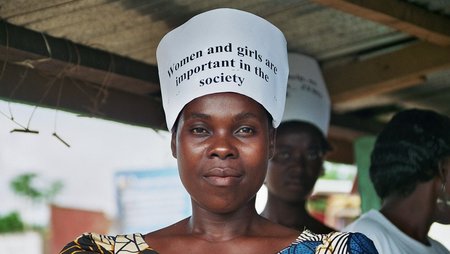
The West African women’s movement looks back on a long history: they played a significant part in the anti-colonial resistance, and in the historical protests of peace activists that led to the end of the Liberian civil war and the election in 2006 of Ellen Johnson Sirleaf, Africa’s first democratically elected female president. Although women played an important role in pacifying and democratising their countries, they rarely occupy political leadership positions and are even bullied and threatened if they run for political office. In the parliaments of Liberia and Ivory Coast, the proportions of women are only 11 resp. 14 per cent.
In Sierra Leone, the situation has changed: In early 2023, President Julius Maada Bio signed the Gender Equality and Women’s Empowerment Act (GEWE). Among other things, this stipulates that 30 percent of positions in government and the public administration must be filled by women. This led to an increase in the proportion of women parliamentarians from 13 per cent to about 30 per cent after the parliamentary elections in June 2023. Our partner organisations have supported this process and will now work to ensure that the law is implemented accordingly.
In Liberia, where presidential elections will be held in October 2023, a similar law is being vetoed by president George Weah.
(Updated: 08/2023)
Facts & figures from our practical work
Partner organisations:
- Liberia: ADWANGA, medica Liberia, Rising Youth Mentorship Initiative, Women Aid
- Sierra Leone: AdvocAid, Choices and Voices Foundation for Women and Girls, Forum Against Harmful Practices, Girl 2 Girl Empowerment Movement, Women Against Violence and Exploitation in Society
- Ivory Coast: CEFCI
Project priorities:
- Campaigns and dialogue at community level, empowerment of women and girls
- Support networks at the local level
- Networking for activists, feminist organisations and other networks
Funding and funders:
- German Federal Ministry for Economic Cooperation and Development (BMZ)
- Pro Victimis Foundation
- Medicor Foundation
- Comic Relief
- Own resources
Source: Annual Report 2022
© Dreimalig/medica mondiale
Focal points of work
In the Mano River region of western Africa, sexualised violence is still very widespread. For example, a study from Liberia shows that there is a connection between armed conflicts and intimate partner violence after the end of armed conflict. Other effects of the civil war, such as trauma and structural discrimination, also burden women and girls to this day. Our partner organisations are working to ensure that women and girls can live in dignity and free of violence. To achieve this, they focus on the following three fields of activity:
1. Preventing violence against women
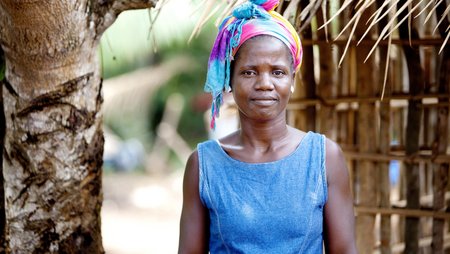
In order to prevent sexualised and gender-based violence, our partner organisations work to try and convince government and civil society to assume responsibility for the protection of women and girls. At the same time, the women’s rights organisations empower women and girls to protect themselves and demand their rights.
Political commitment to protection and prevention
In order to provide the impulse for change in society, our partner organisations are active at the political level. They are calling publicly for the enforcement of existing laws to protect women and girls from violence and campaign together with teachers and midwives against female genital cutting.
In Liberia, medica Liberia works together with numerous women’s rights organisations and with the Women’s and Justice Ministries in a National Task force on gender-based violence, seeking to improve the protection and prevention measures.
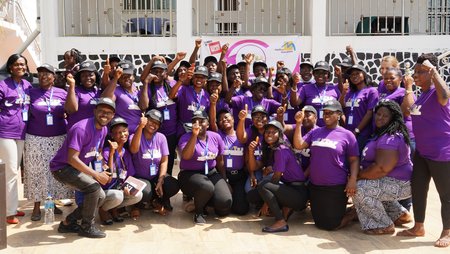
In Sierra Leone, the priority at WAVES is access to education for girls. The organisation also fights at the political level against child marriage and female genital cutting. In 2019, WAVES and other activists successfully took a case to the Court of Justice of the Economic Community of West African States (ECOWAS), seeking an end to a law used by the Sierra Leone government to forbid pregnant girls from attending school.
Advocating for equal rights and participation
Our partner organisations work to increase the number of women in government. medica Liberia was involved in the development of Domestic Violence Act, as well as the National Action Plan to implement UN Resolution 1325, which should ensure equal participation of women in peace and security policy initiatives.
Raising awareness about violence against women and girls
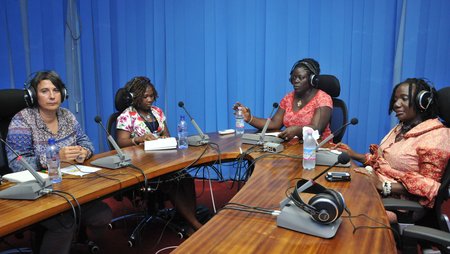
In order to encourage the social surroundings of women to accept responsibility for protecting women, medica Liberia organises events in market places, schools and hospital wards to raise awareness of women’s rights and the issue of sexualised violence. In the wake of large numbers of schoolgirls being subjected to sexualised harassment, in 2018 medica Liberia joined forces with the Liberia Feminist Forum to initiate one of the country’s largest protest marches. Their message was accompanied by an awareness campaign and the hashtag #weareunprotected, and directed at both government and society.
In the radio program “Know your rights”, the legal counsellors from medica Liberia answer questions on land issues and maintenance payments for women. In Côte d'Ivoire, CEFCI educates society about the causes and consequences of female genital cutting and marriage of underage girls.
2. Solidarity and support for survivors
Women and girls who have experienced sexualised violence need appropriate psychosocial, medical, legal and economic assistance. This is why our partner organisations offer survivors low-threshold contact points, trauma-sensitive counselling, and support as they make their way through institutions.
Local protection networks and direct counselling
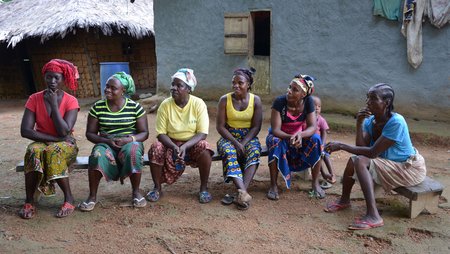
medica Liberia has established community-based support and protection networks which can offer rapid assistance to affected women even in remote regions. Women’s groups serve as an initial point of contact. Counsellors trained by medica Liberia can support women and accompany them to the police or hospital. Where appropriate, they also mediate between survivors and their families and involve the village elders in the conflict resolution efforts. In serious cases, the local protection networks facilitate contact between the survivors and the team from medica Liberia in the county capitals. Depending on their needs, the women and girls then receive psychosocial, legal, or medical counselling.
In Sierra Leone, for example, the Choices and Voices Foundation is training “Pioneers”. These are men and women who can be the first point of contact for survivors in their communities. They provide everyday support and also help them to take the perpetrators to court.
Reintegrating and empowering women who have experienced violence
Our partner organisations support women who are stigmatised due to their experiences of violence in the reintegration into their communities. Income-generating measures empower women and enable them to provide for their livelihoods independently.
Empowering women and girls
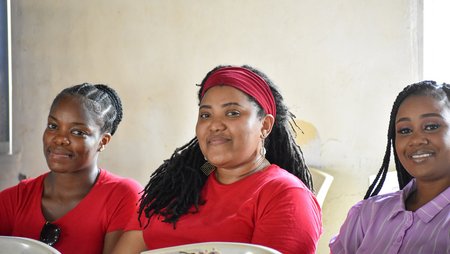
In Liberia the Rising Youth Mentorship Initiative (RYMI) and in Sierra Leone the Girl2Girl Empowerment Movement have both created safe spaces where girls can express and organise themselves creatively and politically. In the Ivory Coast, the Women Center for Democracy and Human Rights supported women and girls who wanted to set up their own businesses. These involved the production of cassava flour and shea butter. In Sierra Leone WAVES (Women Against Violence and Exploitation in Society) is helping girls to become more aware of their potential and prospects. Many of the young people who have taken part in the program are now active in their schools as spokespeople and confidently represent the concerns of their fellow pupils to the school administration.
Qualifying professionals in a trauma-sensitive way
Increasingly often, after their contact with medica Liberia, many of the local authorities responsible for traditional mediation are taking the side of the women and helping them to take their case to court. Further, medica Liberia is providing training for police staff, lawyers, judges and teachers on the issues of gender, violence and human rights, as well as the Stress- and Trauma-sensitive Approach (STA) to dealing with those affected by sexualised violence.
3. Strenghtening feminist action
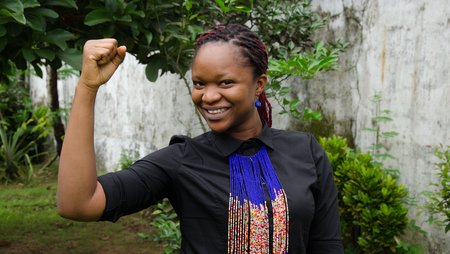
While the extent of sexualised violence in the region has been increasing for years, the scope of action for women’s rights defenders in Liberia, Sierra Leone and Ivory Coast is becoming more restricted. There is also a decline in the access to funding for women’s rights work in the region. So a strategically important component of the work in West Africa is to strengthen feminist work and cross-border networking.
Strengthening local women’s rights organisations
medica mondiale is intentionally creating opportunities for our partner organisations to enhance their structures, synergies and strategies. Examples include building up funding strategies or documentation systems, as well as the introduction of security concepts and self-care procedures.
Feminist networking leads to sustainable impacts
The further development of strategies and networking with other feminist actors in the region also support the organisations in the long term. This overall approach enhances women’s rights work in the area and helps to bring about societal change. Since 2021, Medica Liberia is training other partner organisations in a South-to-South learning approach.
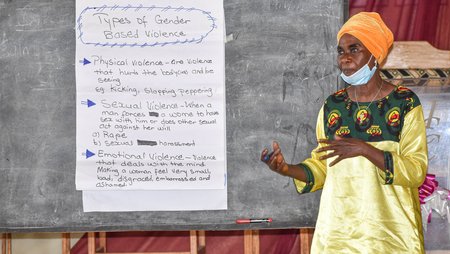
In order to ensure that more survivors can access trauma-sensitive offers of assistance, the trainers also provided training for the staff members of our partner organisations in Sierra Leone: WAVES, Choices and Voices and Girl2Girl. During the training courses they explained how they had succeeded in (re-)establishing a feeling of safety as they worked with clients. And they also emphasised how important it is for the activists to focus on their own strengthening and stabilisation, since they cannot help others unless they ensure they have enough power. Subsequently, these trainees then returned to their organisations and passed on what they had learnt to their colleagues.
(Status focal points of work of: 08/2023)
